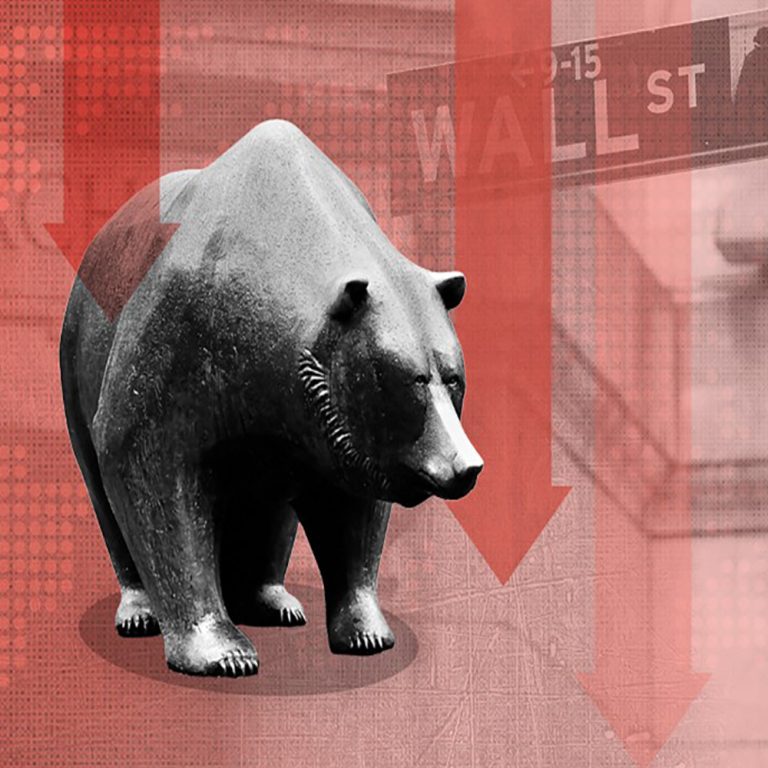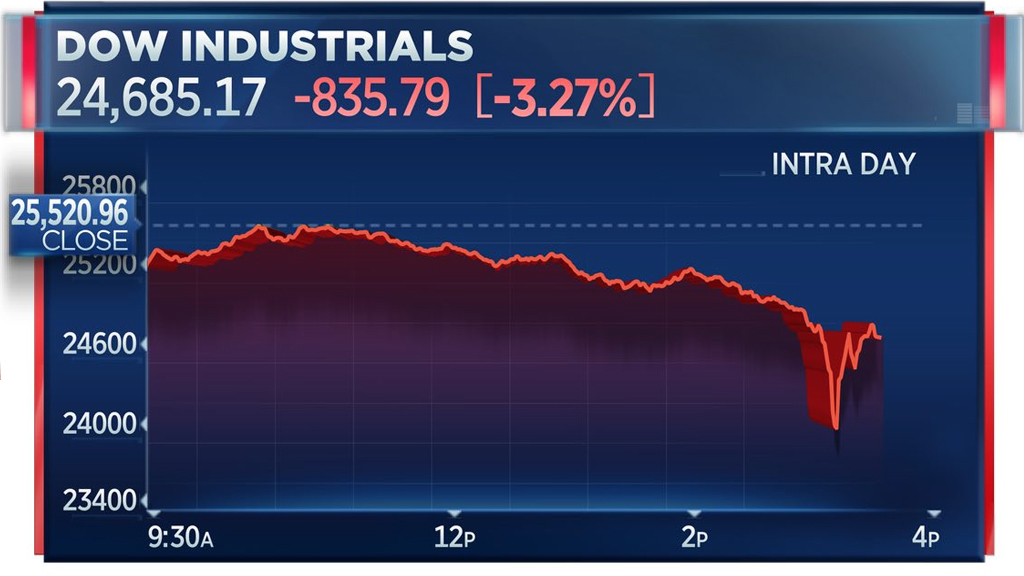‘Black Monday’ Shows Bitcoin Isn’t As ‘Dangerous’ As Regulators Claim
 Looking at mainstream media headlines over the past few weeks shows a lot of columnists and pundits have declared that ‘bitcoin’s bubble has burst.’ They always claim that it’s much safer to invest in traditional investments like equities or the stock market while at the same time highlighting cryptocurrency’s volatile price swings. However, on Monday, February 5th the Dow Jones Industrial Average dropped more than 1,175 points, losing more value in one day than the entire cryptocurrency ecosystem over the past six weeks. Also read: Market Risk Advisory Committee: Bitcoin Futures Self-Certification Works
Looking at mainstream media headlines over the past few weeks shows a lot of columnists and pundits have declared that ‘bitcoin’s bubble has burst.’ They always claim that it’s much safer to invest in traditional investments like equities or the stock market while at the same time highlighting cryptocurrency’s volatile price swings. However, on Monday, February 5th the Dow Jones Industrial Average dropped more than 1,175 points, losing more value in one day than the entire cryptocurrency ecosystem over the past six weeks. Also read: Market Risk Advisory Committee: Bitcoin Futures Self-Certification WorksThe Black Monday of 2018
It was a ‘Black Monday’ on February 6 when both global stocks and the entire cryptocurrency ecosystem shed billions yesterday. The Dow Jones Industrial Average (Dow) and a good portion of stocks worldwide plummeted at 2:40 pm EDT; more so than the drops during the 2008 economic crisis. Yesterday’s stock market dip broke records not only bringing up memories of 2008 but the day was also very similar to the other ‘Black Mondays’ of 1929, 1987, and 2000. However, mainstream media is not so quick to call the stock market slump a ‘crash,’ a ‘bubble pop,’ or even a death spiral. Yet the Dow lost more value ($300 billion USD) than the entire crypto-bear run of 2018 in one intraday.
Some Reports Say the Stock Market Sell-Off Pushed Money Towards Crypto-Investments
In addition to the grueling stock market madness, the financial publication Business Insider published a report that stated, “money was pouring into crypto during the stock market’s selloff.” The Dow started to nosedive at 2:40 pm EDT, and twenty minutes later the entire cryptocurrency capitalization according to Coinmarketcap spiked 7 percent one hour later. “Cryptocurrencies got whacked alongside equities last week,” explains the report on Monday evening.But Monday’s continuation of the stock market selloff appeared to send some investors to digital currencies in search of a safe haven.

Mainstream News Outlets Have No Problem Saying Bitcoin Is Dead But They Think Twice When It Comes to the Global Stock Market
Over the past week, mainstream news outlets have had no problem calling bitcoin markets ‘dead’ and publishing reports stating that it will never recover. There are at least seven new editorials per day stating that bitcoin is “done” since the beginning of January. There’s no hesitation towards telling the public that the dream of cryptocurrencies has come to an end, and many columnists are telling people to sell. On Tuesday, February 6, mainstream media’s outlook on the stock market is gloomy, but there’s not that many (if any at all) editorials about the stock market ‘crashing,’ or the ‘stocks bubble has popped.’ The only ones calling the stock market ‘dead’ are the lesser known ‘conspiracy-like’ publications. Mainstream media pundits wouldn’t dare shake the market with headlines saying that traditional markets are in a ‘death spiral.’ But with cryptocurrencies, these ‘news outlets’ could not care less about spreading FUD among the crypto-investment crowd.
The Stock Market Can Be Far More Dangerous Than Crypto
The truth is stocks, bonds, equities, and nation-state issued currencies can suffer from extreme volatility. Some nation-state currencies are so worthless people weigh bags of cash on scales rather than counting. Moreover, stock markets can cause significant disruption to retail investors, and way more than the digital currency ecosystem governments warn everyone about. Stock market crashes can collapse an entire housing market, banks close in record numbers, and in some cases, there can be a run on the banks. This week U.S. regulators mentioned the ‘dangers’ cryptocurrencies could bring to retail investors during a congressional hearing, but of course, they failed to mention that regulated and centralized markets can be even more dangerous. What do you think about the stock market tumble in comparison to bitcoin markets? What do you think is more dangerous? Let us know in the comments below.Images via Pixabay, CNN, WSJ Feb.5, and Business Insider.
The Bitcoin universe is vast. So is Bitcoin.com. Check our Wiki, where you can learn everything you were afraid to ask. Or read our news coverage to stay up to date on the latest. Or delve into statistics on our helpful tools page. The post ‘Black Monday’ Shows Bitcoin Isn’t As ‘Dangerous’ As Regulators Claim appeared first on Bitcoin News.
bitcoin is dead Black Monday BTC bubble death spiral Digital Assets Digital Currencies DOW Investors N-Featured Retail Investment S&P 500 stocks Traditional Investors Traditional Markets



